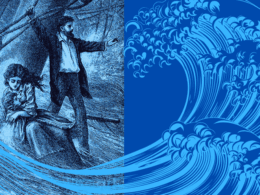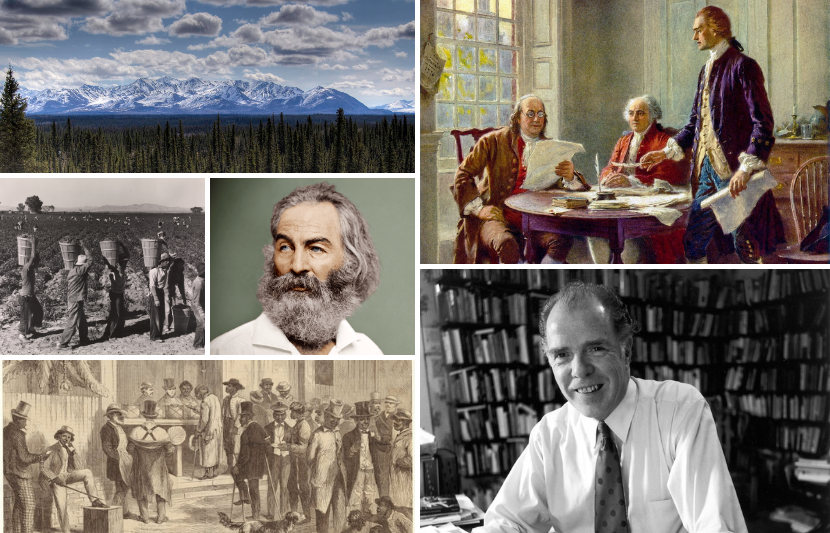
Clockwise from top left: Alaska landscape (CC BY-SA 2.0), Writing the Declaration of Independence, 1776 by Jean Leon Gerome Ferris, 1900 (Public Domain), William Kennedy (Historic Albany Foundation), illustration of freedmen voting in New Orleans, 1867 (Public Domain), Pea Pickers Line Up on Edge of Field at Weigh Scale, near Calipatria, Imperial Valley, California by Dorothea Lange, 1939 (Public Domain), and colorized portrait of Walt Whitman (Internet Archive)
It’s a quintessential semiquincentennial (say that five times fast) for Library of America in 2026. Two hundred fifty years on from the Declaration of Independence, we meet this historic anniversary with an array of new and reissued titles that survey the expanse of our nation’s literature: examinations of our foundational political ideas, forays into the glory of our wild places, and bold works from masterful crafters of American fiction. A nation born of words and ideas, the United States has from its earliest days fostered communities of committed, curious readers who see clearly the link between what we encounter on the page and how we live in the world. Library of America is honored to uphold this tradition with our newest offerings.
Browse the list below for information about contents and publication dates, and click here for a full description of each new release.
LIBRARY OF AMERICA SERIES
William Kennedy: The Albany Trilogy
Legs | Billy Phelan’s Greatest Game | Ironweed
Introduction by Colum McCann
Paul Grondahl, editor
Library of America #397 / ISBN 978-1-59853-841-0
March 2026
John McPhee: Encounters in Wild America
The Pine Barrens | Encounters with the Archdruid | The Survival of the Bark Canoe | Coming into the Country
David Remnick, editor
Library of America #398 / ISBN 978-1-59853-842-7
March 2026
John Steinbeck: The Library of America Collection (four-volume boxed set)
Novels & Stories 1932–1937 | The Grapes of Wrath & Other Writings 1936–1941 | Novels 1942–1952 | Travels with Charley & Later Novels 1947–1962
Elaine Steinbeck, Robert DeMott, and Brian Railsback editors
Library of America volumes #72, #86, #132, #170 / ISBN 978-1-59853-848-9
March 2026
Jim Thompson: Five Noir Novels of the 1950s & 60s
A Hell of a Woman | After Dark, My Sweet | The Getaway | The Grifters | Pop. 1280
Robert Polito, editor
Library of America #399 / ISBN 978-1-59853-843-4
April 2026
SPECIAL PUBLICATIONS
The Testimony of Henry Adams, Freedman: Hope, Terror, and Exodus in the Post–Civil War South
Introduction by Steven Hahn
ISBN 978-1-59853-836-6
February 2026
The Living Declaration: A Biography of America’s Founding Text
Ted Widmer
ISBN 978-1-59853-844-1
May 2026
On Democracy
Walt Whitman
Introduction by David Bromwich
ISBN 978-1-59853-846–5
June 2026
2025–2026 REISSUES
American Antislavery Writings: Colonial Beginnings to Emancipation
James G. Basker, editor
Library of America #233 / ISBN 978-1-59853-196-1
The American Revolution: Writings from the War of Independence 1775–1783
John H. Rhodehamel, editor
Library of America #123 / ISBN 978-1-883011-91-8
William Bartram: Travels & Other Writings
Thomas Slaughter, editor
Library of America #84 / ISBN 978-1-883011-11-6
Thomas Jefferson: Writings
Merrill D. Peterson, editor
Library of America #17 / ISBN 978-0-940450-16-5
James Madison: Writings
Jack Rakove, editor
Library of America #109 / ISBN 978-1-883011-66-6
George Washington: Writings
John Rhodehamel, editor
Library of America #91 / ISBN 978-1-883011-23-9
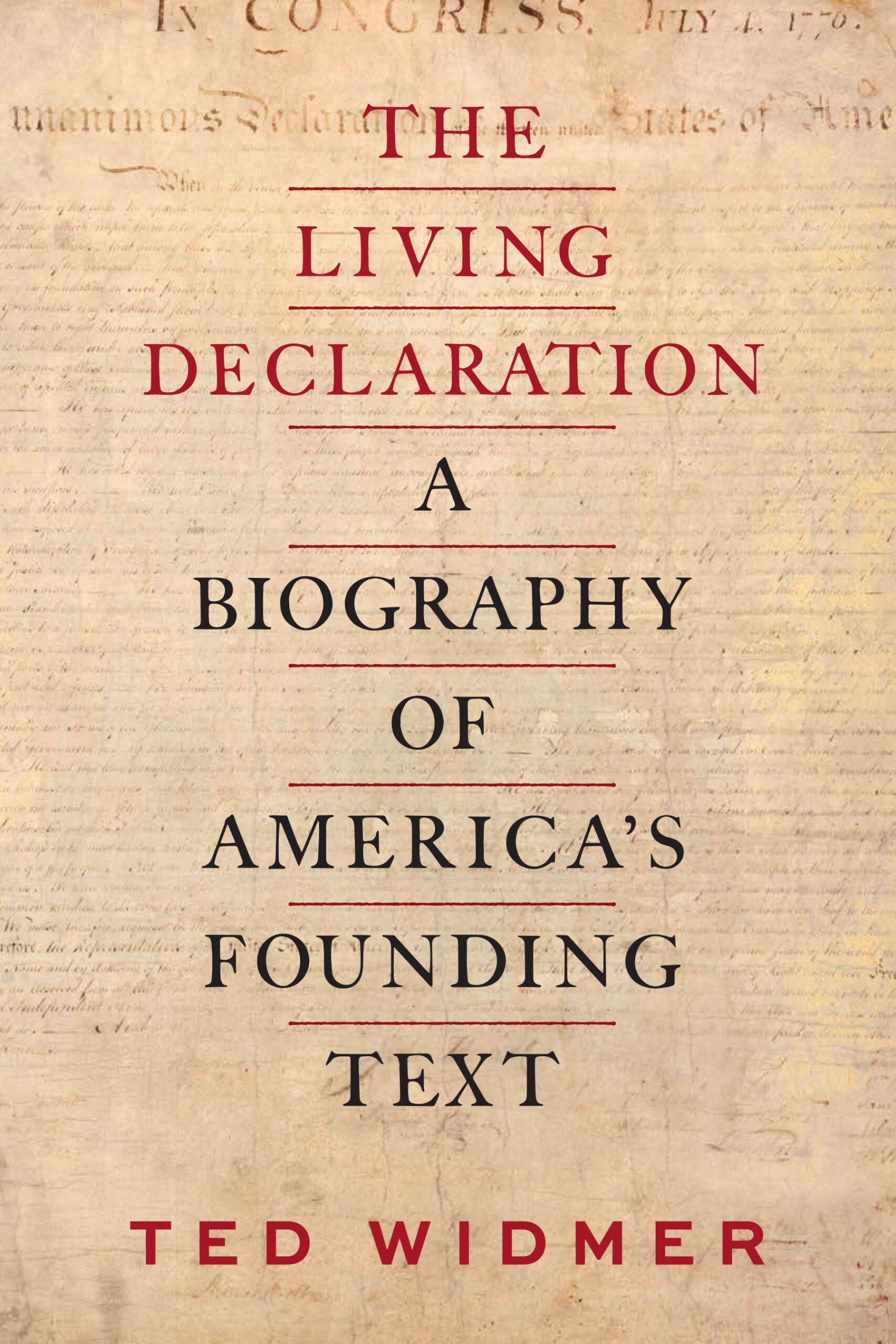
“We hold these truths to be self-evident . . . all men are created equal . . . with certain inalienable rights . . . life, liberty, and the pursuit of happiness.” These phrases remain at once familiar and startling. Where did the words and ideas in the Declaration of Independence come from? What was new about them? What do they mean to us today, and do we understand them in the same way the Founders did? The Living Declaration traces the remarkable history of how our national charter came to be and how it has shaped the democratic aspirations of Americans and others for more than two centuries. Weaving together sixty fascinating original texts—by a full spectrum of American voices, radical and conservative, Civil War combatants and civil rights leaders, presidents and philosophers—historian and presidential speechwriter Ted Widmer reveals the remarkable durability of America’s founding ideas. The voices gathered in this volume are impassioned, and often at odds, but united in the belief that the Declaration reveals something crucial about the American people and about the larger quest for human freedom. Includes sixty-four illustrations.
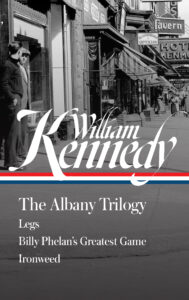
Like William Faulkner and James Joyce before him, William Kennedy transformed the place he knows best into a setting for universal human dramas. Unfolding in Albany during its Prohibition-era heyday, Kennedy’s tales of thwarted ambition and hard-won resilience have taken their place “among the most exuberant literary feats of the past half-century,” as Colum McCann writes in his introduction to The Albany Trilogy. Collecting the first three published novels of Kennedy’s celebrated cycle, the volume opens with Legs, a reconstruction of the exploits of infamous gangster Jack “Legs” Diamond that engages our enduring fascination with underworld kingpins. In Billy Phelan’s Greatest Game, a luckless gambler and pool hustler runs afoul of a corrupt Irish American political machine. Ironweed catapulted Kennedy to overnight literary stardom, earning him a Pulitzer Prize and a National Book Critics Circle Award. Here, Francis Phelan, Billy’s father and a once-promising ballplayer, is in an alcoholic tailspin, a haunted wraith of a man who returns home looking to make peace with his life’s misfortunes. The result is a tour de force, empathetic and clear-eyed, with astounding poetic and emotional power that leaves readers reeling. Kennedy takes his place among the exclusive ranks of living writers in the Library of America series.
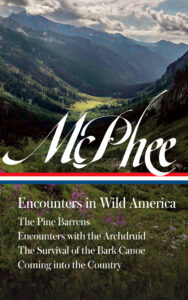
Joining him is incomparable journalist John McPhee, winner of the Pulitzer Prize for nonfiction and a longtime New Yorker contributor. Uniquely adept at assessing humankind’s complex relationship to the environment and humanizing the environment itself through deft language and keen observation, McPhee awakens readers to the world around them—and the impassioned, frequently eccentric individuals who seek out its wilder niches. Edited by New Yorker chief David Remnick in collaboration with the author, Encounters in Wild America gathers four McPhee classics: The Pine Barrens (1968), set in the untamed forests and swamps abutting paved-over, postindustrial New Jersey; Encounters with the Archdruid (1971), recounting three expeditions through pristine ecosystems with a motley crew of expert companions; The Survival of the Bark Canoe (1975), a profile of a New Hampshire canoe builder plying ancient techniques; and Coming into the Country (1977), a magisterial composite portrait of Alaska and Alaskans that transports us to the fringes of civilization. Includes all the original illustrations from earlier editions.
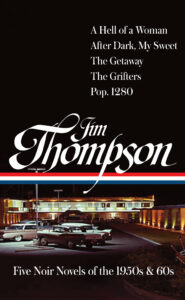
Jim Thompson: Five Noir Novels of the 1950s & 60s gathers in one volume a straight flush of chilling crime classics from the writer who blew the top off the conformity of postwar American life with novels of shocking violence and stunning psychological depth. Already represented in the Library of America’s American Noir collection with The Killer Inside Me, Thompson now joins the masters of American crime fiction featured in the series with this collection of five of his best novels, including A Hell of a Woman (1954), a haunting, mesmerizing portrait of a mind unraveling under the weight of abuse endured and inflicted; After Dark, My Sweet (1955), a sucker punch of a story about an ex-fighter who gets involved in a kidnapping scheme that goes catastrophically awry; The Getaway (1959), about a bank heist that results in a hellish descent worthy of Dante or Bosch; The Grifters (1963), a taut drama that sets a master of the short con on a collision course with the one person he can’t fool: his mother; and Pop. 1280 (1964), which unleashes a dangerously messianic sheriff on a small southern town. Rounding out this deluxe edition is a selection of Thompson’s early shorter works, including experimental nonfiction for the Federal Writers’ Project. At last, “the best suspense writer going, bar none” (The New York Times) gets his due.
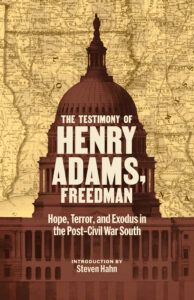
In March 1880, a Senate committee heard two days of testimony from an extraordinary American: Henry Adams, a freedman, former soldier, laborer, faith healer, political activist, sometime undercover government operative, and a leader of the exodus movement of Black Americans from Louisiana. In his exchanges with the senators and his written testimony, Adams chronicled the nightmarish violence and insidious economic exploitation inflicted upon the freedpeople of the south by “the very men who held us slaves.” The Testimony of Henry Adams, Freedman presents the entirety of Adams’s questioning by the committee and the five documents he submitted for the record. Skeptical of preachers, “politicianers,” and the unfulfilled promises of the Republican party, he provides an illuminating perspective on Reconstruction as it was experienced “from below,” far removed from Washington and the major cities of the south. His stunning testimony is a tribute to Black determination and self-reliance, and a timely, terrifying reminder of the fragility of democracy.
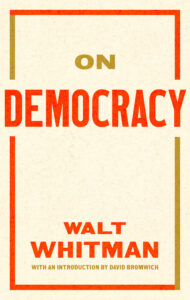
Widely considered the poet of American democracy, Walt Whitman saw in the nation a stark contrast between its stated aims of freedom and liberty and its persistent and pernicious strains of slavery and imperialism. But for all its sins, past and present, Whitman never lost faith in his country’s ideals, mixing a deep skepticism of politics, politicians, and political institutions with an enduring belief in progress, technology, and the “knit of identity” binding Americans together despite their divisions. Marking the first time Whitman’s essential prose writings on democracy have been brought together in a standalone book, this volume collects “The Eighteenth Presidency!,” a scorching exposition in which Whitman expresses his rage over the scourge of southern slavery (“Abolish slavery,” he advises his fellow citizens, “or it will abolish you”); Democratic Vistas (1871), where he dramatizes his role as poet-prophet of a better America; the fiercely combative essay “Origins of Attempted Secession”; and extracts from his classic Specimen Days. An introduction from acclaimed political observer David Bromwich rounds out this compendium of Whitman’s prescient, never-more-necessary observations.

Yet another lodestar of the democratic spirit in American literature, John Steinbeck is revered for his depictions of the dispossessed, cast in plainspoken language and gesturing toward the unfulfilled promise of a greater, more just nation. The John Steinbeck Collection assembles eighteen of his most beloved works in a handsome, four-volume boxed set that includes landmarks such as The Grapes of Wrath, East of Eden, and Of Mice and Men. Lesser-known books like The Log from the Sea of Cortez, his fascinating account of a marine biology expedition, and Harvest Gypsies, a series of journalistic profiles of migrant farm workers that became the seedbed for The Grapes of Wrath, stand alongside the unforgettable Cannery Row and its sequel, Sweet Thursday.
Finally, an all-star roster of LOA series titles connected to the nation’s 250th are back by popular demand, featuring striking new jackets.
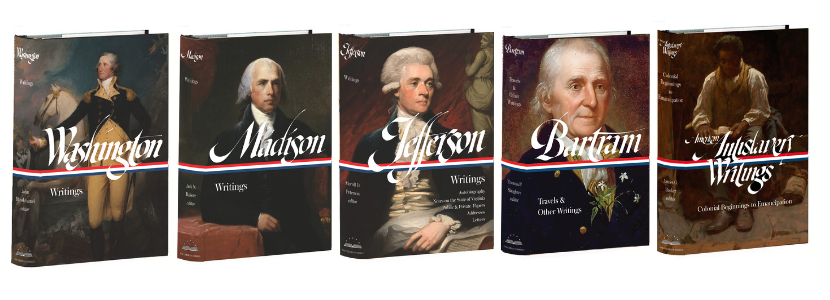
Forthcoming reissues from Library of America: George Washington: Writings, James Madison: Writings, Thomas Jefferson: Writings, Thomas Bartram: Travels & Other Writings, and American Antislavery Writings



